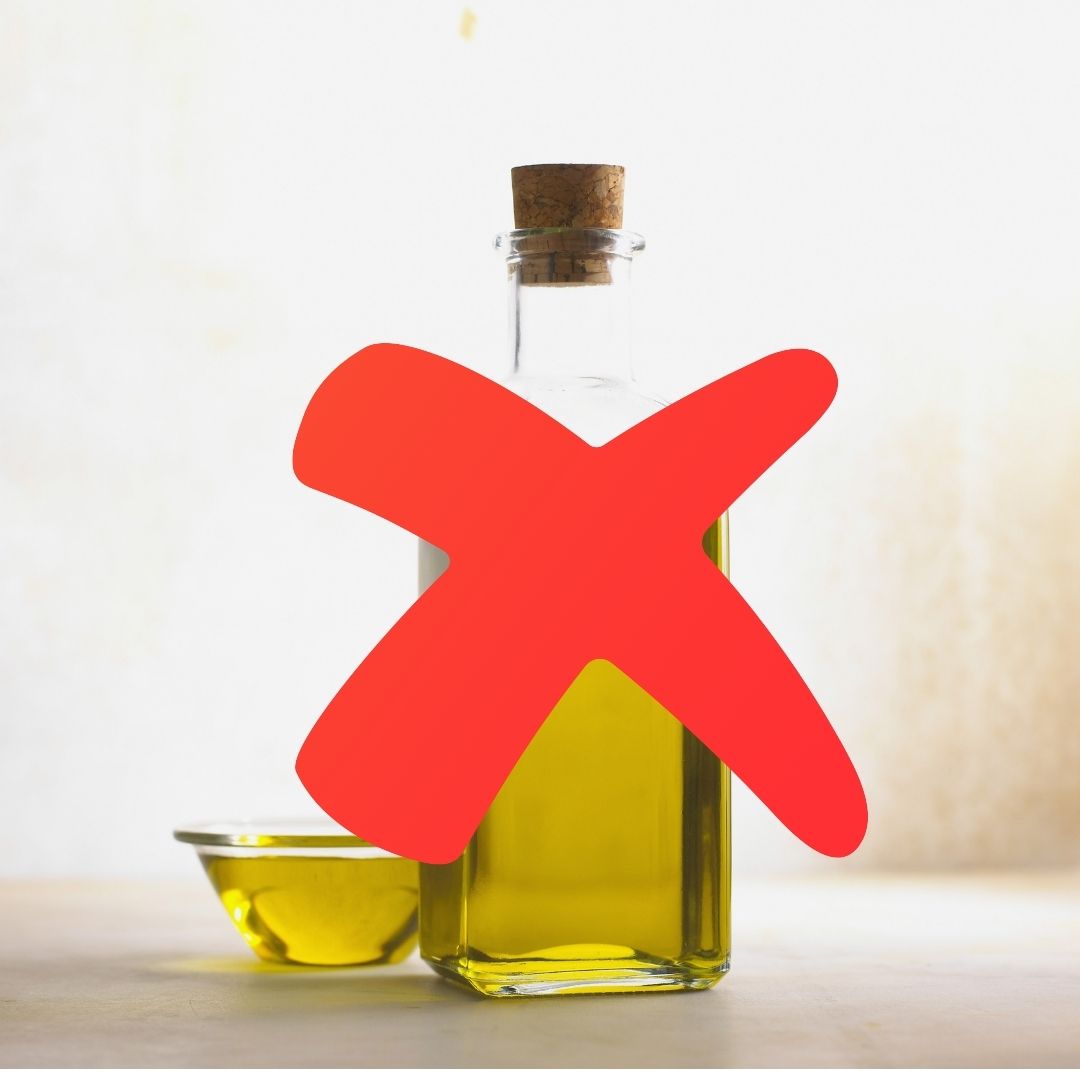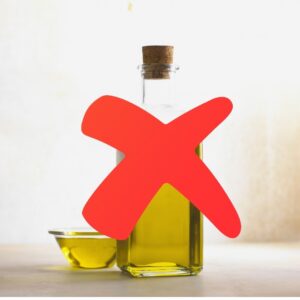
5 Worst Cooking Oils You Should Avoid
Cooking oils are essential in our kitchens, providing flavor, texture, and the ability to cook a variety of dishes. However, not all cooking oils are created equal. Some oils can have adverse health effects when consumed regularly. In this comprehensive guide, we will explore the five worst cooking oils, discussing their potential health risks and why you should consider avoiding them in your cooking.

Introduction
In today’s health-conscious world, the type of oil you use for cooking can significantly impact your overall health and well-being. While some oils are rich in healthy fats and beneficial nutrients, others can contribute to chronic diseases and health issues when consumed in excess.
Why It Matters
Understanding which oils to avoid is crucial for maintaining a balanced diet and promoting heart health. This guide will provide insights into the worst cooking oils and help you make informed choices for your kitchen.
Understanding Cooking Oils
Cooking oils are derived from various sources, including plants, nuts, and seeds. They are primarily composed of fats, which can be classified as saturated, monounsaturated, or polyunsaturated fats.
Types of Fats
- Saturated Fats: Typically solid at room temperature; found in animal products and some plant oils (e.g., coconut oil).
- Monounsaturated Fats: Liquid at room temperature; considered heart-healthy (e.g., olive oil).
- Polyunsaturated Fats: Also liquid at room temperature; includes omega-3 and omega-6 fatty acids (e.g., flaxseed oil).
The 5 Worst Cooking Oils
Palm Oil
Overview: Palm oil is derived from the fruit of the oil palm tree and is commonly used in processed foods and frying.Health Risks:
- High in Saturated Fats: Palm oil contains about 50% saturated fat, which can raise LDL cholesterol levels when consumed in excess.
- Environmental Concerns: The production of palm oil is linked to deforestation and habitat destruction for endangered species.
Cottonseed Oil
Overview: Cottonseed oil is extracted from the seeds of cotton plants and is often used in processed foods.Health Risks:
- High in Trans Fats: Many commercially available cottonseed oils contain trans fats due to the hydrogenation process.
- Potential Allergens: Cottonseed oil may cause allergic reactions in individuals sensitive to cotton products.
Soybean Oil
Overview: Soybean oil is one of the most widely used cooking oils in the world.Health Risks:
- High Omega-6 Fatty Acids: Excessive consumption of omega-6 fatty acids can promote inflammation in the body.
- Genetically Modified Organisms (GMOs): Most soybean oil is derived from genetically modified soybeans, raising concerns for some consumers.
Corn Oil
Overview: Corn oil is extracted from corn germ and is commonly used for frying and baking.Health Risks:
- High in Omega-6 Fatty Acids: Similar to soybean oil, corn oil’s high omega-6 content can lead to an imbalance with omega-3 fatty acids.
- Processing Concerns: Most corn oil undergoes extensive processing that can strip away beneficial nutrients.
Vegetable Oil Blends
Overview: Vegetable oils often consist of a blend of different oils, including soybean, corn, and palm oil.Health Risks:
- Trans Fats Risk: Some vegetable oils may contain trans fats due to hydrogenation processes.
- Nutritional Quality: These blends may lack essential nutrients found in healthier oils like olive or avocado oil.
Health Risks Associated with These Oils
Consuming these unhealthy oils regularly can lead to several health issues:
- Heart Disease: High levels of saturated fats and trans fats can raise cholesterol levels, increasing the risk of heart disease.
- Obesity: Calorie-dense oils contribute to weight gain when consumed excessively.
- Inflammation: An imbalance between omega-6 and omega-3 fatty acids can promote chronic inflammation.
- Digestive Issues: Some individuals may experience digestive discomfort when consuming certain oils.
Healthier Alternatives to Consider
If you’re looking for healthier cooking oil options, consider the following:
- Olive Oil: Rich in monounsaturated fats and antioxidants; ideal for salad dressings and low-temperature cooking.
- Avocado Oil: High smoke point makes it great for frying; rich in healthy fats.
- Coconut Oil: Contains medium-chain triglycerides (MCTs) that may boost metabolism; suitable for baking.
- Grapeseed Oil: A good source of polyunsaturated fats; has a high smoke point for frying.
- Flaxseed Oil: High in omega-3 fatty acids; best used raw in dressings or drizzled over dishes.
Frequently Asked Questions
1. What are the five worst cooking oils?
The five worst cooking oils to avoid are:
- Soybean Oil
- Sunflower Oil
- Partially Hydrogenated Oil
- Rice Bran Oil
- Palm Oil
2. Why is soybean oil considered unhealthy?
Soybean oil is high in omega-6 fatty acids, which can promote inflammation when consumed in excess. Additionally, it undergoes extensive refining processes that can lead to oxidation, increasing the risk of chronic diseases such as heart disease and diabetes.
3. What are the health risks associated with sunflower oil?
Sunflower oil is also high in omega-6 fatty acids, which can cause inflammation and contribute to health issues like cancer and heart disease. When heated, sunflower oil can release toxic compounds known as aldehydes, further increasing health risks.
4. What makes partially hydrogenated oils harmful?
Partially hydrogenated oils contain trans fats, which are linked to increased levels of LDL (“bad”) cholesterol and decreased levels of HDL (“good”) cholesterol. This imbalance raises the risk of heart disease and stroke.
5. Why should rice bran oil be avoided?
While rice bran oil has a high smoke point and contains vitamin E, it is high in omega-6 fatty acids, which can disrupt the balance between omega-3 and omega-6 fatty acids in the body. This imbalance may lead to inflammation and other health complications. Additionally, the extraction process often involves harmful chemicals like hexane.
6. What are the concerns with palm oil?
Palm oil is high in saturated fats, which can raise cholesterol levels and increase the risk of heart disease when consumed excessively. Furthermore, palm oil production is associated with significant environmental issues, including deforestation and habitat destruction.
7. How do these oils affect overall health?
Consuming these oils regularly can lead to an increased risk of chronic diseases such as heart disease, obesity, and diabetes due to their high levels of unhealthy fats and potential for oxidative damage when heated.
8. What should I use instead of these oils?
Healthier alternatives include oils with higher monounsaturated fat content or those rich in omega-3 fatty acids, such as:
- Olive Oil (especially extra virgin)
- Avocado Oil
- Coconut Oil (in moderation)
These oils provide better nutritional profiles and are less likely to promote inflammation.
Conclusion
Choosing the right cooking oil is essential for maintaining good health! By avoiding the five worst cooking oils discussed above—palm oil, cottonseed oil, soybean oil, corn oil, and vegetable blends—you can make better dietary choices that promote overall well-being.
